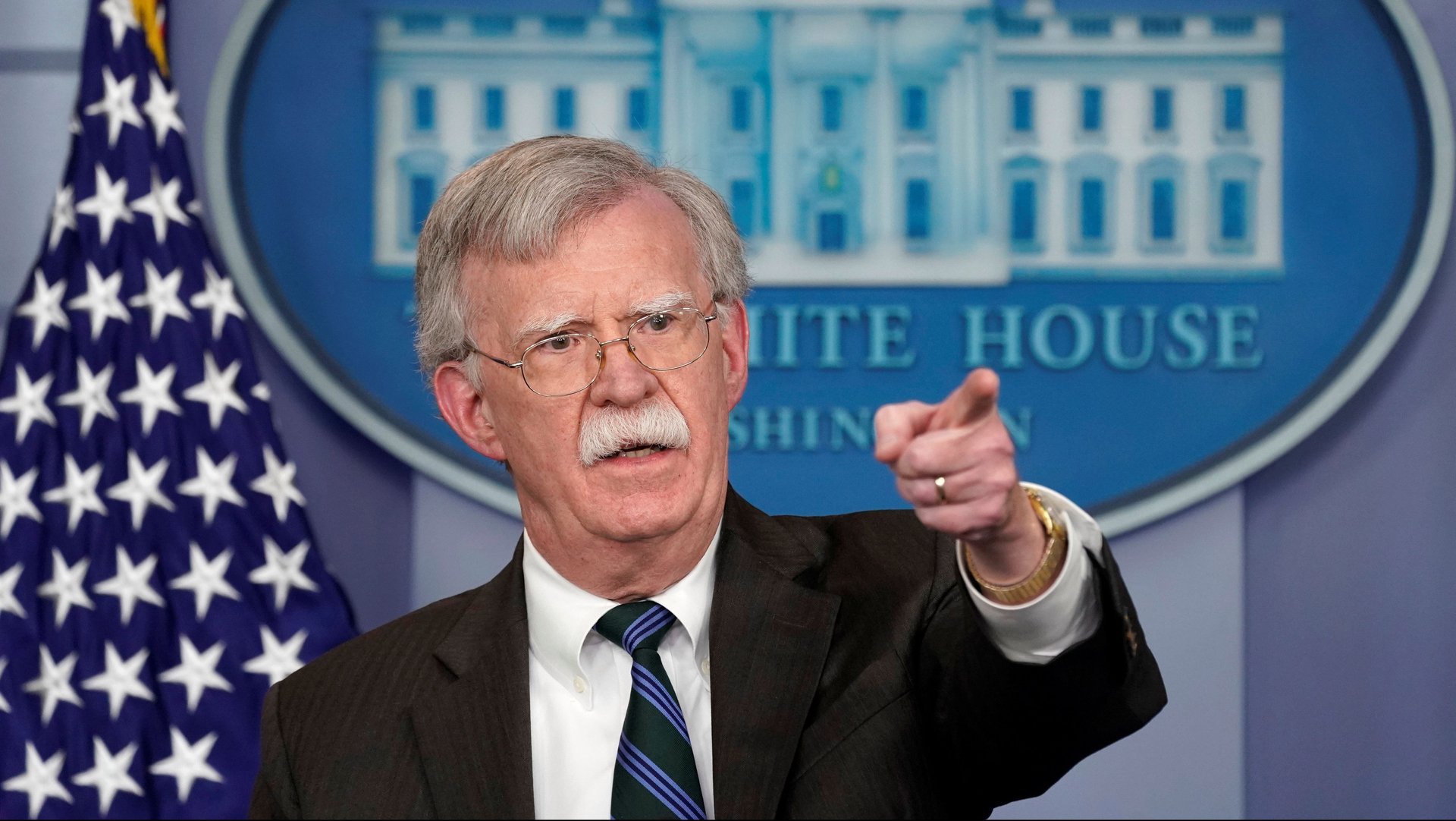The Trump administration’s Africa policy is all about countering China’s influence
Donald Trump’s administration has unveiled its new Africa strategy, a three-pronged plan focused on furthering US interests and countering the “great power competitors” of China and Russia.


Donald Trump’s administration has unveiled its new Africa strategy, a three-pronged plan focused on furthering US interests and countering the “great power competitors” of China and Russia.
In a speech at the Heritage Foundation in Washington DC on Thursday (Dec. 14), national security advisor John Bolton said the US will advance fair trade and commercial ties with African nations, help fight terrorism and militant violence, and provide aid “efficiently and effectively.” On the last point, the administration said it intends to ensure that US taxpayer dollars aren’t used to bolster corrupt leaders and violators of human rights, and will seek to reconfigure or end support for “unproductive, unsuccessful, and unaccountable” peacekeeping operations currently in place in the continent.
“Americans are a generous people, but we insist that our money is put to good use,” Bolton said.
The crux of the speech, however, singled out Beijing and Moscow’s expanding financial and political influence in Africa. Bolton said the two nations were deepening their reach and investments in the region in the hopes of gaining a “competitive advantage” over the US. He especially criticized China’s Belt and Road Initiative, a multi-billion-dollar program that involves infrastructure development and investments in countries across Asia, Europe, and Africa.
“China uses bribes, opaque agreements, and the strategic use of debt to hold states in Africa captive to Beijing’s wishes and demands,” Bolton said. Bolton borrowed his choice of words from former US secretary of state Rex Tillerson, who criticized China’s model of economic development in Africa ahead of a visit to the continent earlier this year.
Sino-Africa relations have grown substantially over the last two decades, with China providing billions of dollars in loans, grants, and development financing to a number of the continent’s 55 nations. The country has financed large-scale infrastructural projects such as railways in countries like Kenya, factories in Lesotho and Namibia, and free trade zones. It also helped Ethiopia launch its first satellite.
China is also exercising major moves as a global military power on the continent, opening up a key military base in Djibouti and deploying peacekeepers in South Sudan, Mali, and the Democratic Republic of Congo. Plus, there’s the training and education opportunities it’s providing thousands of African leaders, bureaucrats, students, and business people.
Russia has also followed this approach in recent years, signing agreements to establish economic zones in Eritrea, exploring opportunities in accessing minerals across southern Africa, and enhancing military and technical cooperation with nations like the Central African Republic.
US officials have grown increasingly worried about what these expansions could mean for their long-term interests in the continent. With its America First mantra, the Trump administration was also initially skeptical of Africa’s place in US foreign policy. Yet to gain leverage over China in Africa, Trump bolstered development via a new agency to $60 billion this year. Trump also named veteran diplomat Tibor Nagy, who has extensive experience working in Africa, to lead the State Department’s strategy there.
Bolton’s speech was criticized for its lack of a commitment to advancing human rights and democracy in the continent.
“Inclusive, participatory democratic governance and economic opportunities are key to fostering trust between governments and the people they are elected to serve,” Mercy Corps’ director of policy and advocacy Richmond Blake said in a statement. “Alleviating suffering, poverty, and oppression and promoting good governance are essential for preventing and ending conflict and terrorism and must be central to US foreign policy across the continent.”